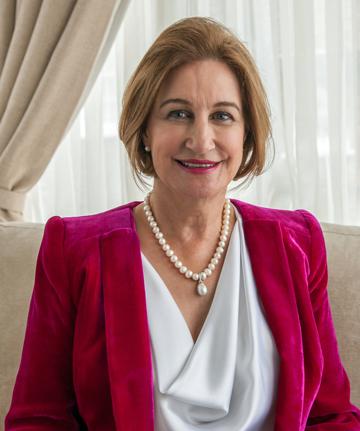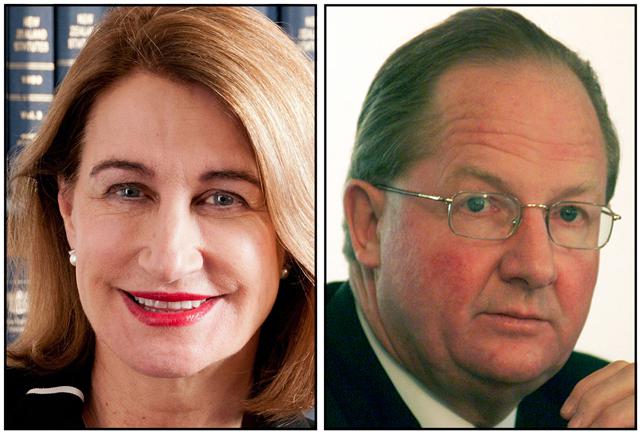|
The Kiwi heading the UK’s inquiry into child sexual abuse – interview
By Clare De Lore
From Millbank Tower on the bank of the Thames, the panoramic views take in some of London’s best-known institutions: Westminster Cathedral, the Palace of Westminster, Westminster Abbey, Scotland Yard, MI5 and, across the river, Lambeth Palace (the residence of the Archbishop of Canterbury) and MI6. The landmarks – and the people who preside in them – are among the dozens of institutions and individuals in the professional sights of the woman who occupies offices on the 23rd floor: Dame Lowell Goddard, the New Zealander heading the Independent Inquiry into Child Sexual Abuse in England and Wales. Goddard, of Ngati Kahungunu ancestry, is a former High Court judge and chair of the Independent Police Conduct Authority. She is the third person to lead the inquiry: two previous appointees resigned because of perceived or actual conflicts of interest and the British Government went beyond the so-called establishment to find someone who could withstand the personal and professional scrutiny that comes with one of the biggest assignments in British legal history. Goddard and her husband, Chris Hodson QC, moved to London last year, and Goddard has spent the better part of 12 months establishing the inquiry and assembling her teams. She and four fellow panel members are determining which issues to investigate. They are supported by a secretariat, legal advisers and other professionals running a separate Truth Project. She expects to complete the work and report her findings and recommendations to the Government within five years. What’s the scope of your work? This inquiry is unprecedented in the breadth and scope of its terms of reference, which are the broadest you would ever have seen. The only inquiry with any parallels is the Australian Royal Commission into Institutional Responses to Child Sexual Abuse. The Australian inquiry has been very helpful to us, because they already have three-and-a-half years’ experience, including the conduct of a very successful Truth Project. Our inquiry is huge and amorphous. It covers every institution, both public and private: all schools; all faith-based institutions; the police; the criminal justice system; the security intelligence services; everything – you name it. It has no time parameters and thus it’s totally different from most inquiries. Normal inquiries generally concern a single issue, so you know immediately what it is you are inquiring into. Why did the mine collapse? Why was the decision taken to enter the Iraq war? What happened that day at the stadium? What happened in that very short space of time on Bloody Sunday? That last one took 11 years, but at least there was an identifiable issue to deal with, and thus a course to be mapped with some certainty. With our inquiry, the difficult thing has been getting structure into it and identifying the solid issues we need to get on with first. What’s the Truth Project? It gives victims and survivors of institutional child sexual abuse the opportunity to bear witness in a confidential environment. It’s an important and distinct process. The information shared by the victims and survivors in these private sessions will give the inquiry a better understanding of the scale and nature of the issue and help us identify patterns and themes about its nature and impact. In due course, the inquiry may publish anonymised accounts of these sessions. Why have you decided to issue a series of reports and findings as you go rather than issuing one final report? It is not useful to people to have to wait for a single report at the conclusion of this inquiry’s work. There are live risks because the inquiry is not just dealing with historical issues. That is why we need to examine many of the issues early, and report on them early. We can’t wait to report on everything at the end; children are at ongoing risk. The investigation into Rotherham by my fellow panel member Professor Alexis Jay is a clear example of that. [More than 1000 children in Rotherham in South Yorkshire were subjected to widespread organised sexual abuse by gangs of British-Pakistani men. It was ignored or covered up for years, but a 2013 inquiry’s findings led eventually to the conviction and imprisonment of several men, the resignation of local government and community leaders and strong criticism of police.] Rotherham is unfortunately not an isolated situation. And the internet is on our horizon because attitudes towards children and the sexual exploitation of them are simply finding more sophisticated and wider outlets. We are now into an era where we have the advent of baby farming in impoverished Third World countries for child sexual exploitation over the internet. These are horrifying developments. They are very difficult areas to police, although there is a worldwide network of international policing that is working to combat these ghastly phenomena. So this inquiry is not something I want to tarry with. It has a role in helping to expose and make recommendations in relation to such appalling manifestations of child sexual exploitation. Of course, we have to proceed with all due caution because we are dealing with reputational risk. It has to be done thoroughly and carefully, but it must be got on with. What about the high-profile individuals whose suspected or actual child sexual abuse has been reported in the media? There is a tendency to think, because of the media focus on “persons of public prominence”, as they are called, that this is what the inquiry is all about – or that it is simply historical. That is a tiny, tiny bit of it. The historic aspects are, of course, relevant and we are directed to look at history to see what that teaches us. Are you being subjected to direct or indirect pressure from media or the Establishment? Out there in the world of social media and even in mainstream media, there is a constant pendulum swinging between “is this going to be a whitewash?” and “is this going to be a witch-hunt?” I tend to take absolutely no notice of that. I keep my eye on the ball. The good thing about having been a judge for 20 years is that you know popularity has got nothing to do with your work. Judges are never there to be popular or populist. You get used to just boxing on and taking things straight down the middle. Do the stories of child abuse and exploitation get to you? I have a wonderful husband and he is very understanding. There have been a couple of times I have gone home and felt really angry about what I have heard. Child migration to Australia in the 1950s is one instance; child sexual exploitation over the internet another; and the advent of baby farming is another. I am told baby farming began in the Philippines and has moved to Africa – producing children from impoverished areas for exploitation over the internet live-streamed and paid for with a credit card. It apparently even involves breeding children to order. We have to make people aware of these things, and aware that it is not all right to access child images simply because there is a depersonalised aspect to somebody sitting in their office or in a dark room in New Zealand or England and watching the exploitation of a baby or a child in some distant part of the world. There is a dissociation in that, a detachment from the reality of the suffering of these children, which is very concerning. How do you wind down after a day of rather grim work? If I want to relax, I go back to books that I have always loved. I will let 12 years go by and then read all of Evelyn Waugh again. Graham Greene’s Our Man in Havana and The Quiet American are favourites. Another favourite is F Scott Fitzgerald, just beautiful prose. And I love Siegfried Sassoon’s books, Memoirs of a Fox-Hunting Man and Memoirs of an Infantry Officer. I love Trollope too, and Chris is getting into them now, although he is a great contemporary reader. I’m not so much. In terms of what is going on in the world, some people have very inquiring minds and read books that reflect that, but I get my information from publications like the Economist or the newspapers. And Private Eye is a treat: it’s a bit naughty. What are you reading at present? On my bedside table I have a very different book – the biography of Robert Sangster [Horsetrader: Robert Sangster and the Rise and Fall of the Sport of Kings, by Patrick Robinson and Nick Robinson]. It’s not only a wonderful bible of thoroughbred breeding over 30 years, but also quite an essay on the boom and bust of the 80s, because the horse-breeding industry was listed on Wall St. Stallions were going for enormous amounts of money – it was the Kentucky boom and bust. There is nothing rational about an involvement in horses – people either can’t see the point of it or they are completely involved. You have long had a passion for horses, as a breeder and owner. Do you still ride? I am thinking of starting again. It’s probably quite mad, but with summer here there will be sedate horses I could go for a little trot round the park on. It would be a lovely thing to do first thing in the morning. There are barracks close by and about once a week, early in the morning, I hear the clip-clop of horses and I rush out and see a string of them going past. It’s gorgeous.
|
.
Any original material on these pages is copyright © BishopAccountability.org 2004. Reproduce freely with attribution.

